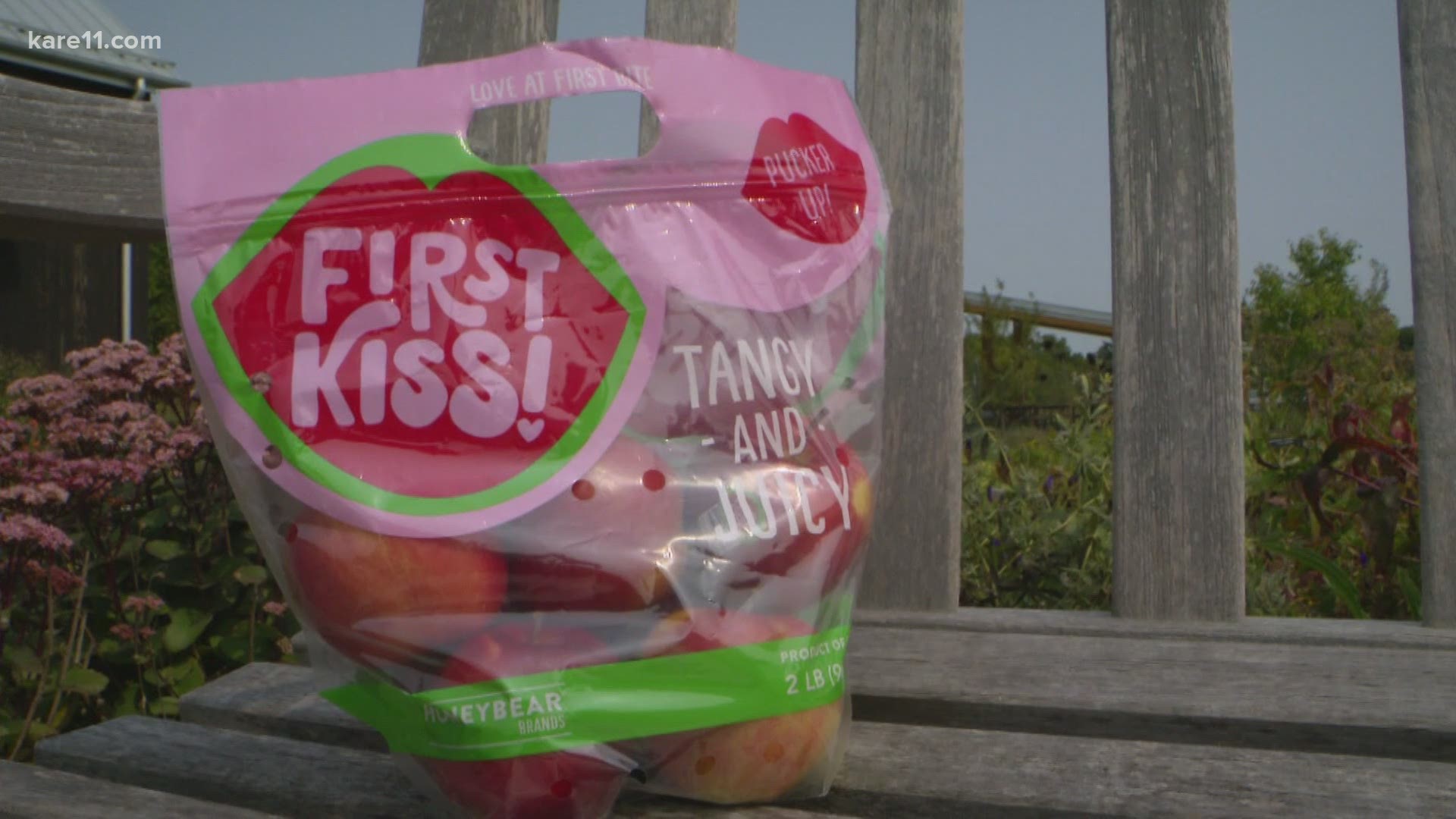MINNEAPOLIS — The Minnesota State Fair usually is the go-to spot for treats--even the ones that don't have to be eaten on a stick.
For the last few years, the First Kiss apple has been a crowd-favorite, partly because of its limited supply.
Plus, it tastes pretty good.
"It falls kind of more in that little bit sweet-tart, probably more in the tart, than sweet," Don Roper said. "It's got that tangy flavor but a little bit of the sweet overtones and we like that complexity we see in the apples."
Roper is the Vice President and owner of Honeybear Brands. They are a Minnesota-based group of developers, growers and suppliers of apples. Roper said that it usually takes at least 10 years for a new variety of apple to be cultivated and commercialized.
"The state fair is one perfect venue to introduce new products and typically when you are doing that, you do't have a lot of product," he said. "To introduce there, you need to get it to the masses."
However, as we all know, 2020 hasn't been great for the masses. So Roper said, Honeybear Brands decided now would be the perfect time to focus on what they can do for the fragile food supply chain that we have been reminded of during the pandemic.
As the First Kiss apples hit grocery stores again for the season, they wanted to release an important message along with it.
"So we're partnering up with key retailers," he said. "In the Twin Cities, it's Cub Foods. The retail partner and ourselves are developing a funding source so we can go out and work on both conservation of our pollinator programs and development of critical habitat for our pollinators."
Meaning, that for the consumer looking to hunt down the still-elusive First Kiss, they'd be supporting the bees and monarchs and other pollinators doing their thing. The best part of it all is that this partnership isn't exclusive to the First Kiss. It applies to all Honeybear Brand apples.
"All the regional grown apples we sell, we're going to set money aside to develop that acre of pollinator land," Roper said. "We figure it averages anywhere from three to five thousand dollars to develop land for pollinators. So how can we take these contributions and develop this pollinator habitat, not only for one to two years but how do we put that in for the next several decades?"
As Roper sat at the University of Minnesota Arboretum's Tashjian Bee and Pollinator Discovery Center, he reflected on the state of the planet that we are living on. When asked if he thinks about the health of our environment before bed each night, he said yes.
"I think probably everyone does," he said. "At the same time, we're at a point in time. These are points in time that it's a continual journey. We can't stop because of where we're at today and we all have to keep working together on it."
Roper added that 40% of pollinators are endangered.

